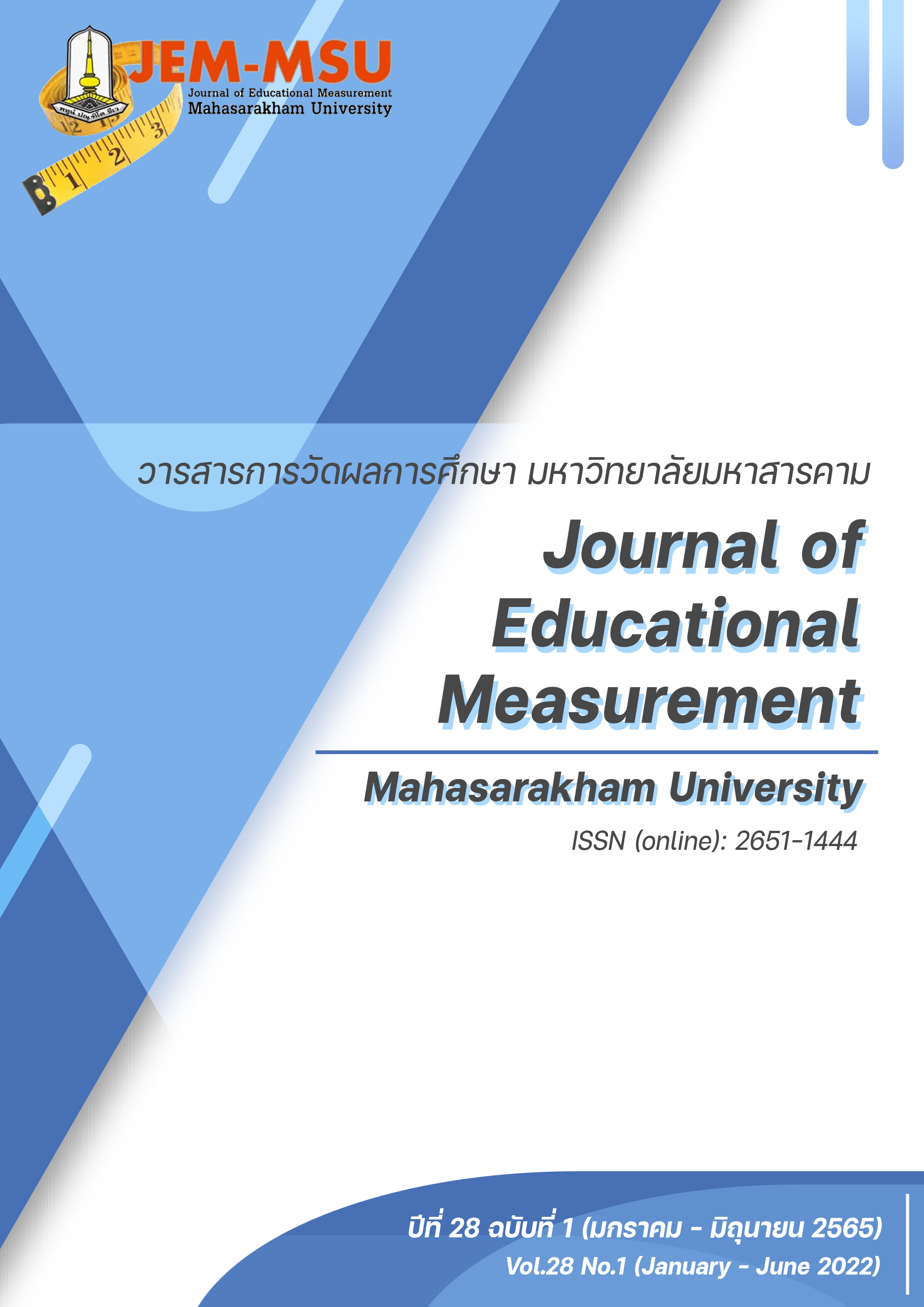Needs in Managing the General Education Section of Phra Pariyattidharma Schools toward Excellence
Main Article Content
Abstract
The objectives of this research were (1) to study the current state and desired state of the General Education Section of Phra Pariyattidharma Schools, and (2) to study the needs in managing the General Education Section of Phra Pariyattidharma Schools toward excellence. The sample used in the research composed of school managers, school directors or school acting directors, school deputy directors, and teachers working in the general education section of Phra Pariyattidharma Schools, totaling 1,352. The instruments in this research were (1) a need assessment form, which was a 5-point rating scale with the dual response format of 30 items to collect the data in details on the present school management and the desired school management, with the discrimination between 0.51 and 0.83 and Cronbach's Alpha Coefficient of 0.95, and (2) a field note. The analysis of data employed descriptive statistics, t-test (independent samples) and Modified Priority Needs Index (PNIModified).
The research results revealed that:
(1) On the whole, the current state of management of Phra Pariyattidharma Schools was in the average level ( = 3.13, S.D. = 0.78). When each aspect was considered, it was found that the highest mean fell on the aspect of outcomes (
= 3.16, S.D. = 0.81), followed by the aspect of organization leading (
= 3.15, S.D. = 0.82), and the aspect with the lowest mean was students and stakeholders (
= 3.10, S.D. = 0.49). Regarding the desired state of managing Phra Pariyattidharma Schools toward excellence, on the whole, it was in the high level (
= 4.39, S.D. = 0.58). When considered by aspect, the aspect of the outcomes had the highest mean (
= 4.39, S.D. = 0.58), followed by the aspect of organization leading (
= 4.41, S.D. = 0.60), and the aspect with the lowest mean was students and stakeholders (
= 4.37, S.D. = 0.63), respectively.
(2) The overall results of the assessment of needs in managing the General Education Section of Phra Pariyattidharma Schools toward excellence revealed that the administrators and teachers had a difference between the needs in the current state and the needs in the desired state, with statistical significance at the level of .01 (PNIModified = 0.371). When each aspect was considered, it was found that the aspect with the highest development need was the aspect of students and stakeholders (PNIModified = 0.40), followed by the aspect of planning (PNIModified = 0.40) and performance (PNIModified = 0.407), and the aspect with the lowest development need was the aspect of personnel (PNIModified = 0.39), sequentially.
Article Details

This work is licensed under a Creative Commons Attribution-NonCommercial-NoDerivatives 4.0 International License.
The content and information contained in the published article in the Journal of Educational Measurement Mahasarakham University represent the opinions and responsibilities of the authors directly. The editorial board of the journal is not necessarily in agreement with or responsible for any of the content.
The articles, data, content, images, etc. that have been published in the Journal of Educational Measurement Mahasarakham University are copyrighted by the journal. If any individual or organization wishes to reproduce or perform any actions involving the entirety or any part of the content, they must obtain written permission from the Journal of Educational Measurement Mahasarakham University.
References
Best, W.J. and Kahn, V.J. (2005). Research in Education (10th ed.). Peason.
Killian, R. A. (1989). Human resource management. MACOM.
Krejcie, R. V. & Morgan, D. W. (1970). Determining Sample Size for Research Activities. Educational and Psychological Measurement, 30(3), 607-610.
Division of Buddhist Studies. (2017). Documents and Statistics. http://deb.onab.go.th/ (in Thai)
Jakkaew, A. (2010). A Study of Academic Administration of Phraprariyattidham Schools, Secondary Level under National Office of Buddhism, Group 1. [Master’s thesis]. Srinakharinwirot University. (in Thai)
Montreepak, S. (2007). Roles of School Administrators in Personnel Development Regarding The Performance Standards of Teachers’ Council’s Rules B.E. 2548 in Schools under Phetchaburi Primary Educational Service Area Office 1 [Master’s thesis]. Srinakharinwirot University. (in Thai)
Office of Basic Education Commission. (2016). Criteria for Quality Awards of the Basic Education Commission OBECQA (2016-2017). The Agricultural Cooperatives Federation of Thailand, Limited. Press. (in Thai)
Office of the National Economic and Social Development Board. (n.d.). The twelfth national economic and social development plan (2017-2021). https://www.nesdc.go.th/nesdb_en/ewt_w3c/ewt_dl_link.php?filename=develop_issue&nid=4345 (in Thai)
Srisa - Ard, B. (n.d.). A Research Development by Using Models. http://www.watpon.in.th/boonchom/development.pdf (in Thai)
Thailand Productivity Institute. (2017). Self-Productivity. Thailand Productivity Institute. (in Thai)
Wittayanukorn, S., Konchalart, K., & Chatcham, S. (2011). A Development of Educational Model to Excellence in Private Schools. Research Data Center. (n.p). (in Thai).
Wongwanit, S. (2015). Need Assessment Research. Chulalongkorn University Press. (in Thai)


